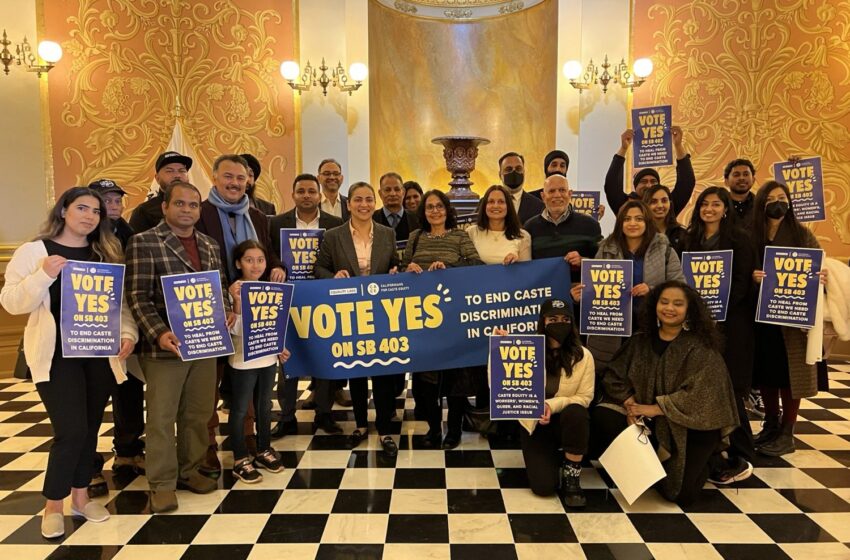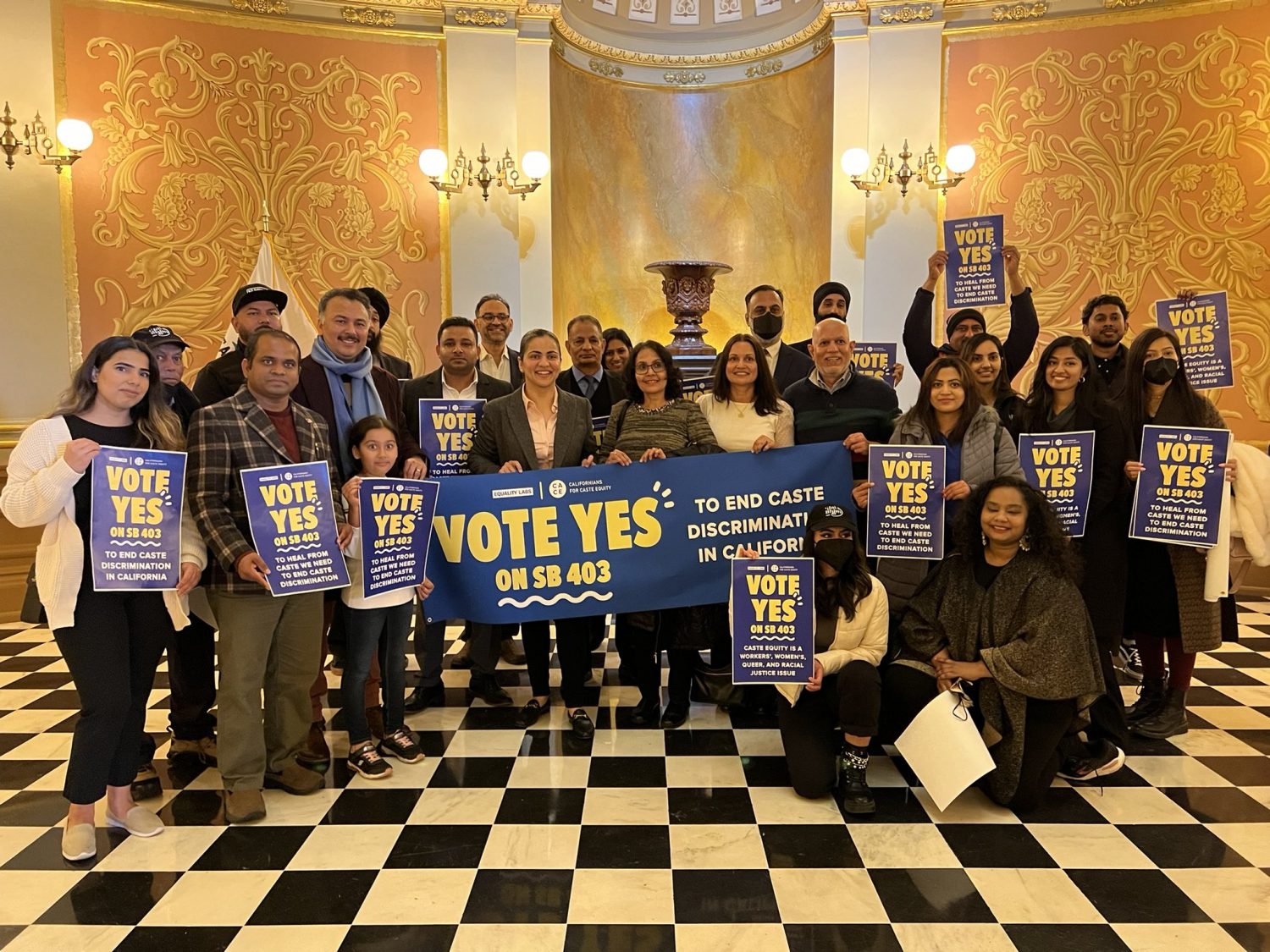California considers ban on caste discrimination

Image Courtesy: @Prem11423

If passed, a new bill could make America’s most populous state the country’s first to outlaw caste-based discrimination
A month after Seattle became the first US city to ban caste-based discrimination, a California lawmaker has introduced a bill to make caste discrimination illegal in the state’s senate.
If it’s passed, California – home to some of the world’s biggest tech companies – will become the first US state to outlaw discrimination based on caste.
Authored and introduced by Democratic Senator Aisha Wahab, Wednesday, the bill proposes to add caste as a protected category in California’s anti-discrimination laws alongside gender, race and disability. Wahab represents a district in north California which has a large number of South Asians, many of whom work in technology firms.
Read: Seattle becomes first US city to ban caste discrimination (February 22, 2023)
The first Muslim and Afghan-American lawmaker in the state, who was raised in the San Francisco Bay Area by a US couple after her parents died, says that while she has not experienced caste discrimination herself, she understands it because of the place she grew up in.
“I’ve had friends tell me that their parents immigrated to this country because they belong to different castes and [their] families weren’t accepting of that,” she told the BBC.
Wahab says she is hopeful her colleagues will support her. Fellow Democratic senator Josh Becker, who represents the district where Alphabet and Meta are headquartered, says he is “supportive of anything to turn the tide” because he is alarmed that in a “country where hate and racism are on the rise, such behaviour [referring to caste] is being accepted and normalised”.
Wahab is now prepared for “roughly a year of not an easy process” – the bill will have to be passed by senate committees, the state senate, the assembly and get the governor’s sign before it becomes a law.
The workers’ union at Alphabet, Google’s parent company, has issued a statement supporting Wahab’s bill. The bill is also supported by a broad coalition that includes a newly public group called Tech Workers for Caste Equity, which describes itself as an interfaith, multiracial, inter-caste collective dedicated to class equity.
The bill has several opponents, who argue that such laws will single out Indian and South Asian communities for unique legal scrutiny and make them less likely to be considered for jobs.
Before the Seattle city council passed a resolution moved by Indian American councillor Kshama Sawant, nearly 100 organisations and businesses had written to it, asking it to oppose the caste ordinance.
Wahab’s bill follows efforts by tech workers to highlight bias they faced within US tech companies based on caste, a system of social hierarchy that dictates a person’s standing at birth, according to the Washington Post.
Read: Seattle considers historic law barring caste discrimination (February 21, 2023)
In Silicon Valley, where a significant portion of employees and contractors are South Asian, workers have grown increasingly vocal about caste discrimination in recent years, it said.
Wahab is spearheading the bill because caste bias affects her constituents, she told the Post, pointing to high-profile instances that originated in her district, which includes parts of Silicon Valley and the East Bay.
The nuances of caste discrimination may not be widely understood or mainstream, but as California grows increasingly diverse, its policies need to stretch out and protect more people, Wahab said.
Wahab said that as an Afghan American woman, she is particularly sensitive to the way non-Christian faiths are depicted, perceived and discussed. However, she emphasized, “This has nothing to do with religion.”
“I am not legislating anyone’s personal practice of their faith or what happens in their places of worship,” she said. “This is about ensuring caste discrimination does not further entrench itself in our workplaces and education system.”
The bill follows efforts by other institutions to identify and address caste bias in existing policies. California State University added caste to its anti-discrimination policy after allegations of caste bias at its East Bay location, Wahab said.
And California’s Department of Fair Employment and Housing filed a landmark lawsuit against Cisco alleging caste discrimination at the company’s headquarters in San Jose.
But early policy efforts to enshrine caste as a protected category within the United States have been met with social media attacks and lawsuits, the Post noted.
Read: Kshama Sawant introduces first law to ban caste discrimination (January 25, 2023)
After Seattle, Washington became the first city to ban caste discrimination in February, Indian American Ohio state Sen. Niraj Antani (R) condemned the ordinance as “Hindu-phobic.” In October, two Hindu professors filed a lawsuit against Cal State for adding caste to its anti-discrimination policy.
The professors were represented by the Hindu American Foundation, a Washington DC-based group that has helped coordinate pushback against efforts to raise awareness around caste, which HAF says unfairly targets Hinduism.
